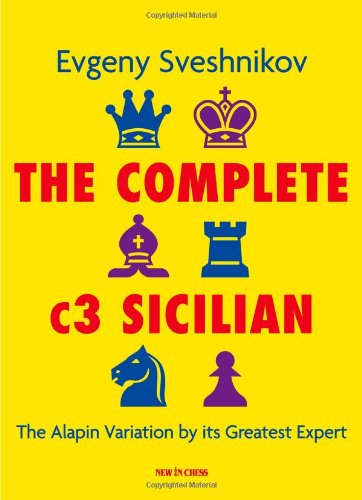What are
/r/ChessBooks'
favorite Products & Services?
From 3.5 billion Reddit comments
The most popular Products mentioned in /r/ChessBooks:
The most popular reviews in /r/ChessBooks:
There were 5 matches!
There are separate books for each match, for example Keene has written "Massacre in Merano", "Maneuvers in Moscow", "Showdown in Seville", etc.
Probably the best choice is The Longest Game (2019) by Jan Timman
I've only browsed it so far, but this looks like a great book with annotated games and historical perspective.
Masterpieces and Dramas of the Soviet Championships: Volume I (1920-1937)
Two more volumes are coming soon.
Low-effort post, but I'll assume best intent.
https://www.amazon.com/dp/0713478853
The paperback is a whopping $450.00
While the Kindle edition is only $11.49
So download is the cost-effective option.
Yes, certainly suitable for you level.
I like the book but can't say that it is better than alternatives -- I am very critical of most books.
There's a Kindle edition so go to Amazon and request the free sample to your PC or mobile device.
Reading the sample will give you a much more concrete idea of if YOU will benefit.
>something against the Nimzo Samisch and Kmoch
> against the KID Four Pawns Attack
Maybe what you need instead is a "kickstarter" book. It helps you master all the basics and increase your rating quite quickly. I used this one last year, and now I'm 2000 on Lichess (rapid).
I've heard good things about "How to Be a Class A Player" by Alex Dunne. Sometimes the price gets absurd for this and other used chess books but right now it is more "reasonable" on amazon. https://www.amazon.com/gp/product/0938650416/ref=ppx_od_dt_b_asin_title_s00?ie=UTF8&psc=1
> Did Capablanca write it in English?
Yes.
A reporter watched Capablanca compose a newspaper article, also in English, following his championship loss to Alekhine.
By what we were able to see, he writes in English, a language that is familiar to him, and in which he has published a volume of great technical value.
At your level what you need is a kickstarter guide. Like this one.
Watson wrote a modern answer to My System.
Can't say anything about it since I have not read it. But people seem to like it too.
This is exactly what you need:
Soltis - Turning Advantage Into Victory in Chess (2004)
From the Introduction:
Let me begin with full disclosure: When I became a master I was still awful at winning a won game. The vast majority of my games ended in the middlegame. I sim- ply didn't trust myself in an ending. Even when I had an extra pawn or two I would avoid any invitation to trade queens. I had been disappointed too many times with winning positions that I had amassed by move 40-but which turned out to be dead draws by move 60 (if not by move 42). You may have had the same experience. Winning technique is the hardest skill to master. Why? I suggest it's because of the change in our thinking that comes about as we approach the endgame.
Table of Contents:
1) If I'm Winning, Why Can't I Finish Him Off? 2) Simplify, Simplify 3) First Steps 4) Swapping and Squeezing 5) What It Takes To Win Most Endgames 6) Material Alchemy 7) King Matters 8) Attitude - The Weapon 9) King Runs and Pawn Management 10) Mishaps, Mistakes, and Misfortunes 11) Putting It All Together
I personally bought: Liquidation on the Chess Board: Mastering the Transition into the Pawn Ending
I haven’t read it yet but I think it addresses your questions / concerns and gets good reviews from readers.
This is from a Dover edition that was first published in 1962. The author is listed as A. Nimzovich. It’s an unaltered republication of the 1936 original English edition.
I was only able to make it through maybe 20 pages of this. It belonged to my dad and is just really difficult to read. There have probably been more than a few beginners who were recommended this book and, after looking it over, decided it was better to stick with Parcheesi.
There’s a “21st century edition" on Amazon that looks like it’s a lot easier to read. It has algebraic notation and more diagrams. One reviewer also recommended a newer “Chess Classics” version.














